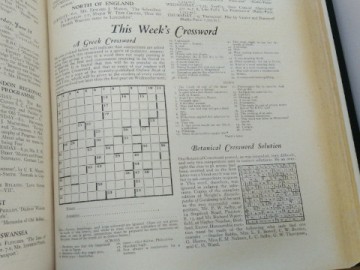Plato chose a convenient spot for his Academy, about half-way between the main railway and long-distance coach stations in Athens. The area is now a park with, like a lot of ancient sites, not much to see apart from a few stones on the ground. There’s a small ‘Digital Museum’ nearby which unfortunately I did not have time to visit.
Needless to say the entrance no longer bears the inscription it did: that has been replaced by some rather unsavoury graffiti, of which I will spare you my photo.
I thought it was important to avoid using any linguistic information not found in Chambers. For example, the spelling of ΑΚΑΔΗΜΕΙΑ can be confirmed under ‘academy’ (even the ambiguous vowel quantities are marked), and the relation between omicron and omega and the technical meaning of ‘quantity’ are also in there.
The text of the inscription can be found in the fourth edition of The Oxford Dictionary of Quotations. Some on-line sources give a different word order: the one in the ODQ is also supported by Liddell and Scott’s A Greek–English Lexicon, which is by far the most authoritative source on ancient Greek and is freely available online. The only Greek letters that solvers needed to be able to draw from scratch were capital delta and capital omega, which I hoped would be familiar from river morphology (or maybe airlines) and physics (or maybe horology) respectively. As the mathematician J E Littlewood nearly said, ‘However little Greek I know I am capable of copying a Greek sentence.’
I got the computer to generate random perspective projections of a tetrahedron with vertices near integer grid points, and plotted some of the better candidates. From these I picked the one I found most aesthetically pleasing: I didn’t want it to be too symmetrical in case it could be mistaken for a logo or other two-dimensional symbol. So the projection is not exact (exercise for the reader: is there a non-trivial exact projection into integer coordinates?) but the vertices are within about 0.12 grid-square units of an exact projection.
It was good fortune that this projection happened to make the edge at the back of the solid pass through exactly six cells, which I could make spell out DOTTED, and I had DASHED as a back-up. That promoted the three-dimensional pure geometrical interpretation of the drawing, and also mopped up some of the flexibility in the fill of the bottom half of the grid.
It was only just possible (again, computer to the rescue) to find a sequence of extra words for the clues that unjumbled appropriately. As an extra constraint, I wanted to have the unjumbled forms overlap the boundaries between the extra words, like the way a bricklayer uses an overlapping bond to increase the strength of a wall. That meant that when the solver found one extra word it would help with finding the ones immediately before and after.
I braced myself for feedback complaining that using Greek letters is elitist. Similar criticism has been levelled at earlier puzzles in the series that required the solver, for example, to find the Russian for a (chess) knight or assemble a quotation in Latin, but fortunately not too many solvers complained on this occasion. Solvers for whom the puzzle was not elitist enough might like to have a go at the earlier Listener pictured below—click for a higher-resolution version. The theme notes at the Listener website include a spoiler for the effectively quadruple-unched (!) 11 down.
As ever, my thanks to the vetters and to the marker for all their work, in particular to the former for picking up an unfortunate error in one of my original clues. Thanks also to the tester for wisely persuading me to tone down my original rather racier proposed title.
Quinapalus.


If you’re not going to tell us your proposed title, perhaps you might offer us a cryptic clue for it?
I don’t understand the actual title – care to expand?
From listenercrossword.com: “The puzzle’s title referred to a platonic relationship, which doesn’t involve “it” (sexual relations).”